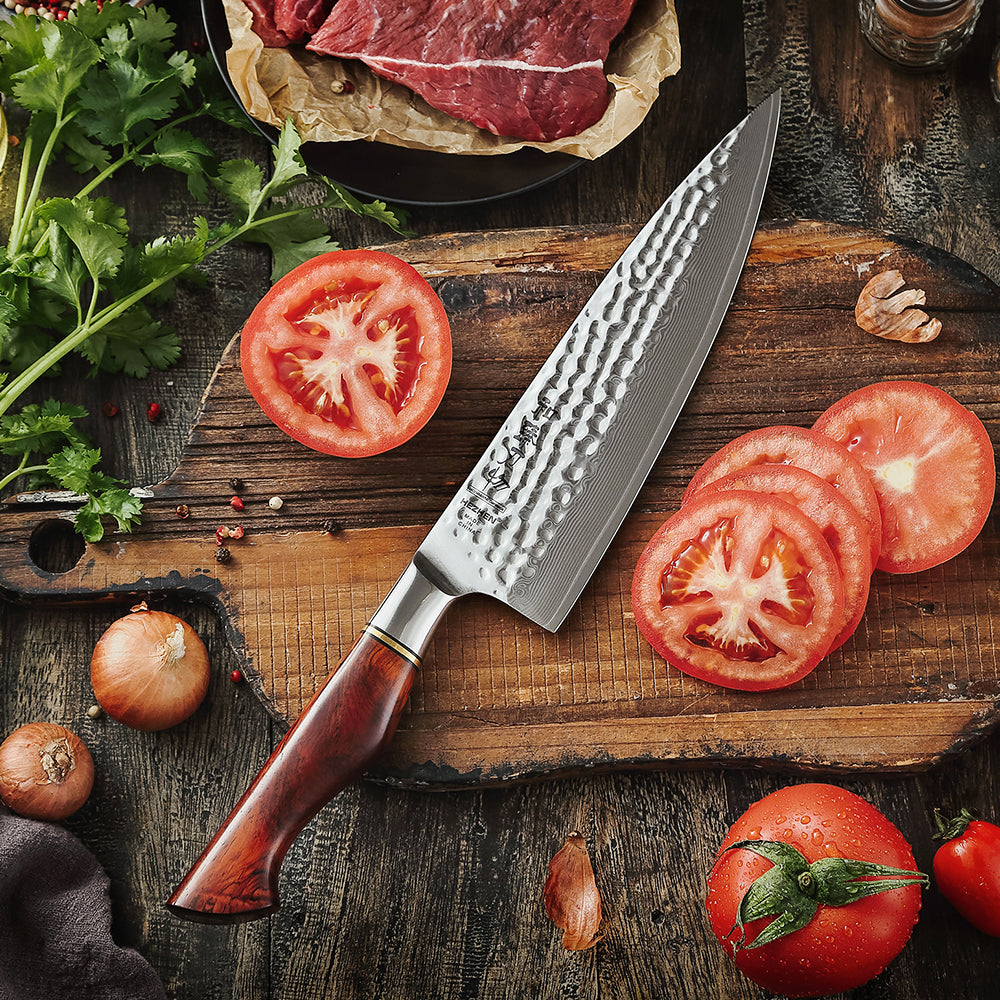Introduction:
A Damascus chef knife with a rosewood handle is a prized possession for any chef, offering unparalleled sharpness, durability, and beauty. To ensure that your knife continues to perform at its best for years to come, proper maintenance is essential. In this guide, we'll explore the best practices for maintaining your Damascus chef knife rosewood handle to keep it in top condition.
Hand Washing:
To maintain the sharpness and integrity of the blade, always hand wash your Damascus chef knife with a rosewood handle. Avoid placing it in the dishwasher, as the harsh detergents and high heat can damage the blade and handle. Instead, use a mild dish soap and warm water to gently clean the knife, taking care to avoid the rosewood handle.
Drying Immediately:
After washing, dry your Damascus chef knife with a soft cloth immediately. Avoid air drying or leaving it wet, as this can lead to rust and corrosion. Pay special attention to the area where the blade meets the handle, as moisture can accumulate here and cause damage over time.
Storing Properly:
Store your Damascus chef knife with a rosewood handle in a knife block, magnetic strip, or protective sheath to prevent damage and ensure safety. Avoid storing it loose in a drawer, as this can lead to nicks and scratches on the blade. Store the knife in a dry place away from heat and moisture to maintain its sharpness and longevity.
Regular Sharpening:
To maintain the sharpness of your Damascus chef knife, regularly sharpen it using a sharpening stone or honing rod. Start by honing the blade with a honing rod to realign the edge, then use a sharpening stone to sharpen the blade as needed. Regular sharpening will ensure that your knife remains sharp and ready for use.
Avoiding Hard Surfaces:
When using your Damascus chef knife, avoid cutting on hard surfaces like glass, metal, or stone. Instead, use a cutting board made of wood, plastic, or bamboo to protect the blade from damage. Cutting on hard surfaces can dull the blade and cause chips or nicks, compromising its performance.
Avoiding Bones and Frozen Foods:
Damascus chef knives are designed for slicing and chopping fruits, vegetables, and meats, but they are not intended for cutting through bones or frozen foods. Avoid using your knife for these tasks, as it can damage the blade and affect its sharpness. Use a dedicated bone or frozen food knife for these purposes to protect your Damascus chef knife.
Regular Maintenance of the Handle:
The rosewood handle of your Damascus chef knife also requires regular maintenance to keep it in top condition. Wipe the handle with a damp cloth after each use to remove any food residue or dirt. Occasionally, treat the handle with a food-safe wood oil to prevent it from drying out and cracking.
Conclusion:
Proper maintenance is essential for ensuring that your Damascus chef knife with a rosewood handle remains in top condition for years to come. By following these tips, you can keep your knife sharp, safe, and beautiful, allowing you to enjoy its exceptional performance in the kitchen.







0 Comments